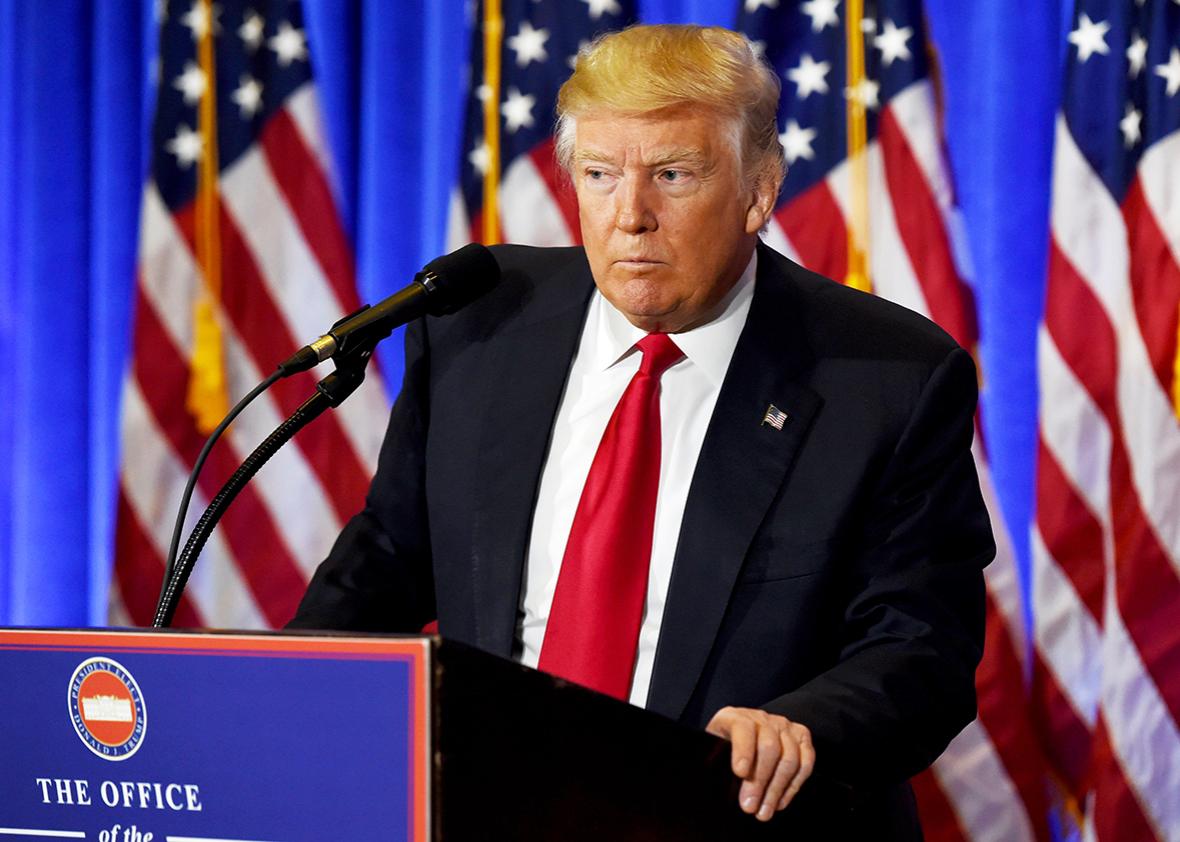Reporters covering Donald Trump waited 167 days between press conferences. On Wednesday morning, journalists waited another 14 minutes beyond the event’s scheduled 11 a.m. EST start time for the president-elect to appear before the media in Trump Tower. Why don’t press conferences ever start on time?
Because politicians are always late, and reporters aren’t always punctual either. Government officials want to make sure they have the press’s undivided attention, which means they don’t want journalists and TV crews to be milling about and setting up cameras as the press conference starts. By coming to the lectern a few minutes after the announced start time, a politician can assure everyone is settled in. But more often it’s the star of the show who holds things up.
High-profile pols cram a lot of events in each day, so their schedules don’t allow for much buffer time between appointments. Those tight schedules mean that if a surprise event breaks, they might need to stall long enough to catch up on the news. Communication staffers dread having their bosses caught off guard. In 2015, House Minority Leader Nancy Pelosi was asked about Barbara Boxer’s retirement in a press conference. “What?” she said in response. She paused before admitting she had missed a call from Boxer. “She said she wanted to talk to me personally; I thought she maybe wanted to have dinner tonight or something.”
Delays can also happen if a politician takes issue with her briefing materials. When going through a list of expected questions, she might not agree with the prepared answers. When that happens, the politician might halt everything to sort out her stance.
There can be event-staging issues as well. Technical issues with cameras and microphones can be tricky, and sometimes there are last-minute debates about logistics: Can reporters ask questions, and who speaks before whom?
The politicians’ personalities matter, too. When it comes to recent presidencies, George W. Bush was known for his punctuality while Bill Clinton and Barack Obama were both known for being perpetually late. The Washington Post calculated that in 2014, Obama was on average 11 minutes late to events, adding up to a total of more than 35 hours for the year. Eleven minutes isn’t too bad for a presser, though. Robert Gibbs, who served as the White House press secretary during Obama’s first term, arrived three hours and 17 minutes late to his final White House press briefing on account of the resignation of Egyptian President Hosni Mubarak.
Explainer thanks former Hillary Clinton press aide Jesse Ferguson; Sen. Orrin Hatch’s communications director, J.P. Freire; and former White House press secretary Mike McCurry.
